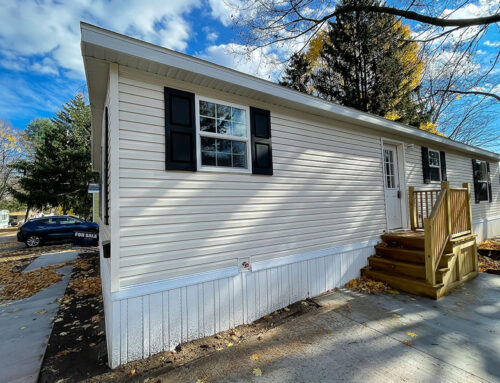My mom and dad have been talking about investing in real estate after retirement since before I even finished college. And, that was a long time ago. Now that I’ve been a professional real estate investor for a couple of decades, and they’ve both been retired from the New York City Department of Education, they’ve decided to put their money where their mouths are, so to speak.
Though I prefer buying, rehabbing, and selling single-family homes as an investment strategy, they’re leaning towards buying and managing rental properties. I’ve noticed that retirees often assume that being a landlord in NYC is going to be easier to do in their golden years than buying houses to renovate and sell. Truth be told, a lot of new investors think this way. But, like anything, there are pros and cons that should be weighed equally. And, when you break it all down, being a landlord may not be the best strategy you can take.
A Breakdown of Being a Landlord in NYC
Whether you’re fresh out of school and wondering how to invest in real estate at a young age, recently retired and looking to start a new chapter in life, or just ready to ditch your corporate gig for a career you like, buying properties to hold has a strong appeal. Rental properties are frequently touted as an easy and profitable entry into real estate investing. And, in cities like the Big Apple, that seems especially the case. Since the tipping point—the time it takes for the accrued costs of renting to eclipse the cost of buying—can be as high as 30 years in some parts of the city, it makes more sense for a lot of people to rent. So, it would seem to make good financial sense to buy property to hold as a rental. After all, if it’s that easy to get tenants, then it shouldn’t be hard to meet your mortgage obligations with their rent.
But, there are pros and cons to being a landlord that you should consider before you rush out and buy that first rental property. I’ll break them down for you, just as I did with my parents, so that you can decide sooner rather than later if being a landlord in NYC is all it’s cracked up to be.
The Pros of Owning and Managing NYC Rentals
The supposed ease of finding tenants and being able to make your property’s loan payments with their rent isn’t the only pros of owning and managing rentals. There are several reasons why many real estate investors choose to build an investment portfolio with the buy-and-hold strategy. Here they are in a nutshell.
- Passive income. The opportunity to earn money without having to actively work for it—passive income—is a powerful and persuasive reason to buy and hold property. There is a trick to generating passive income from your real estate investment, however. Since the operating expenses for a rental, whether it’s a small multi-family building or a single-family home, are high in New York, your rents have to be higher. So, whether you own in the Financial District of Manhattan, where median rents run well over $3,500, or in parts of Queens, where some rents hover just below $1,600, the total cost to run your rental, not just the mortgage, must be less. If it is, those extra earnings are yours.
- Tax deductions. Certain tax deductions for investment property are available to landlords that aren’t accessible to the average homeowner. The benefit of these deductions is that they can help to reduce your overall operating costs, giving your actual take-home pay a nice boost. Things like running a home office, advertising vacancies, maintaining the grounds, and even traveling to-and-from your units may all be deductible. Renovating your property as well as the interest you accrue on the rehab loan, might also qualify. It’s even possible to take a depreciation deduction to account for how the property naturally breaks down as it ages. Though, on average, property taxes are relatively low in the city compared to the rest of the state, New York City’s property tax rate isn’t subject to the same cap that other municipalities are. So, each deduction you can take to counter every tax year’s hike is critical to keeping your costs low and your cash flow high.
- Property appreciation. Property values tend to appreciate over time and can usually handle even the hardest of market hits. There have been exceptions, of course. But, given a long enough timeline, most housing markets bounce back—sometimes bigger than before—and most investment properties continually increase in worth. Since this time last year, for example, median home sales prices rose another 2.4% for Manhattan, Brooklyn, and Queens despite what appears to be a shift towards a buyers’ market. And, you can increase your property’s value, and its potential selling price, by upgrading or adding certain amenities, like an onsite washer and dryer or a dog run.
The Cons of Owning and Managing Rentals
Of course, there are just as many cons for owning and managing rental property as there are pros. And, unfortunately, they can make the cost of being a landlord in NYC too high of a price to pay. Take a look at what you’ll have to watch out for if you want any chance of making the ownership of rentals worth it.
- Property maintenance. Maintaining your buy-and-hold is a full-time job in New York City. Whether you’re fixing a newly broken window, repairing an old pre-war radiator, or just trying to prevent rats on your investment property, the work never ends. And, because the city is home to both extreme winters and summers, the work can also be grueling—and expensive if you’re trying to keep a 19th-century brownstone in good working order. Don’t make the mistake of skipping out on your landlord responsibilities to try and save a few bucks, either. With more tenants teaming up to help the city crack down on slumlords, the salad days of ignoring a tenants’ pleas for a reasonably habitable home are long gone. Try it and your “passive” income might go away too.
- Problem tenants. Dealing with problem tenants can be a headache and, when you’ve been a landlord long enough, you’re bound to have a few. There’s just no way around making the occasional bad call and renting to a really bad egg. We’ve all been there. But, not every problem, like a tenant’s inability to pay the rent on time or keep their dog from chewing on the cabinets, is a deliberate provocation. Sometimes, normally great renters simply make not-so-great choices.
- Price to hold. During the initial renovation, any major repairs, and generally whenever your rental property is vacant, you’ll have to pay holding costs—and they can get pricey. There is the mortgage payment, for example. But, there’s also the cost of keeping the lights on and paying the property taxes. You should also be protecting your investment property with the right insurance coverage. In fact, if Hurricane Irene taught us anything, it’s that a comprehensive policy that covers flooding is critical—even if your property isn’t located in a designated flood zone. All these add up quickly, though, especially if you end up with an extended vacancy.
- Keeping it occupied. Even during the best of times and when your rental is in tip-top shape, it’s not always easy finding the right tenant willing to pay what you need to cover your costs and then some. In New York, where landlord concessions are more common than ever, that’s especially true. And, without a tenant paying the rent regularly, it can be prohibitively expensive to meet all of your financial obligations. But, if you don’t, the bank will take notice—and, possibly, your property.
- Financial risk. When it comes to your bottom line, you can’t afford to slip up, no matter what happens or if it was on purpose. You’ll always have to make your mortgage payment, whether the rent is being paid or not, just as you’ll always have to conduct repairs, whether a tenant’s deposit covers it or not. And, if and when a problem gets too great and the time comes to kick a tenant out, good luck—especially if your property is rent-stabilized. Evicting a rent-controlled tenant in NYC isn’t easy or cheap. But, attempting to drive them out could cost you even more, like a felony conviction.
Without taking into account all that being a landlord in New York City entails, it’s easy to assume that buying property to hold is a much better investment strategy than buying it to resell. But, you know what they say about making assumptions. And, you should know what experienced investors, like myself, say about buying investment property for any reason: There will always be risks to investing in residential real estate, no matter which strategy you choose.
In my experience, however, buying, rehabbing, and selling homes holds the potential to offer a lot more in returns over the long haul than being the landlord of a rental for the long term. For example, you’re typically in and out of projects in fewer than nine months. So, you get to work within a market timeline that’s more predictable and that makes budgeting your business more manageable. On the other hand, there’s no telling where the market will be when you want to, or have to, sell your rental. The shorter timeline also frees you, and your cash, to invest in additional properties sooner. The same can’t be said when your funds are tied up in keeping a rental property maintained and its problem tenants in check.
But, to succeed at this investment strategy, you’ll still have to work hard and have a good grasp on what you’re working on. I can’t help you with the former, but I can certainly help you with the latter.
The Best Way to Build Your Career Begins With Knowing the Business
My first foray into real estate investing was a buy-and-hold. Like many new investors, I bought into the idea that being a landlord was an easy entry into an industry I knew so little about. Unfortunately, I learned the hard way that owning and managing rental property wasn’t any easier than buying houses to rehab and resell. In fact, after one too many fiascos with problem tenants, it was clear that it was actually harder.
But, buying, renovating, and selling single-family homes wasn’t exactly a cakewalk either until I became an independently owned and operated HomeVestors® franchisee. Not only did I need to learn more about how to professionally invest in real estate, but I also needed to understand how to effectively implement what I learned in the field. As a HomeVestors® franchisee, I got what I asked for. I received some of the most comprehensive training available in the business, starting with a week-long training at the corporate office and then from my local HomeVestors® franchise network. So, I knew what to look for—and what to look out for—when buying properties. But, I also got access to one-on-one mentoring with my own Development Agent once I started investing and whenever I had any questions. So, if there was ever a situation in which I wasn’t “in the know,” there was always someone nearby who did.
Whether you want to invest in real estate after retirement or when you first head out into the working world, don’t make it harder than it needs to be. Contact HomeVestors® today to discuss how being a franchisee can lead to a great professional real estate investing career.
Each franchise office is independently owned and operated.
Contact
"*" indicates required fields





